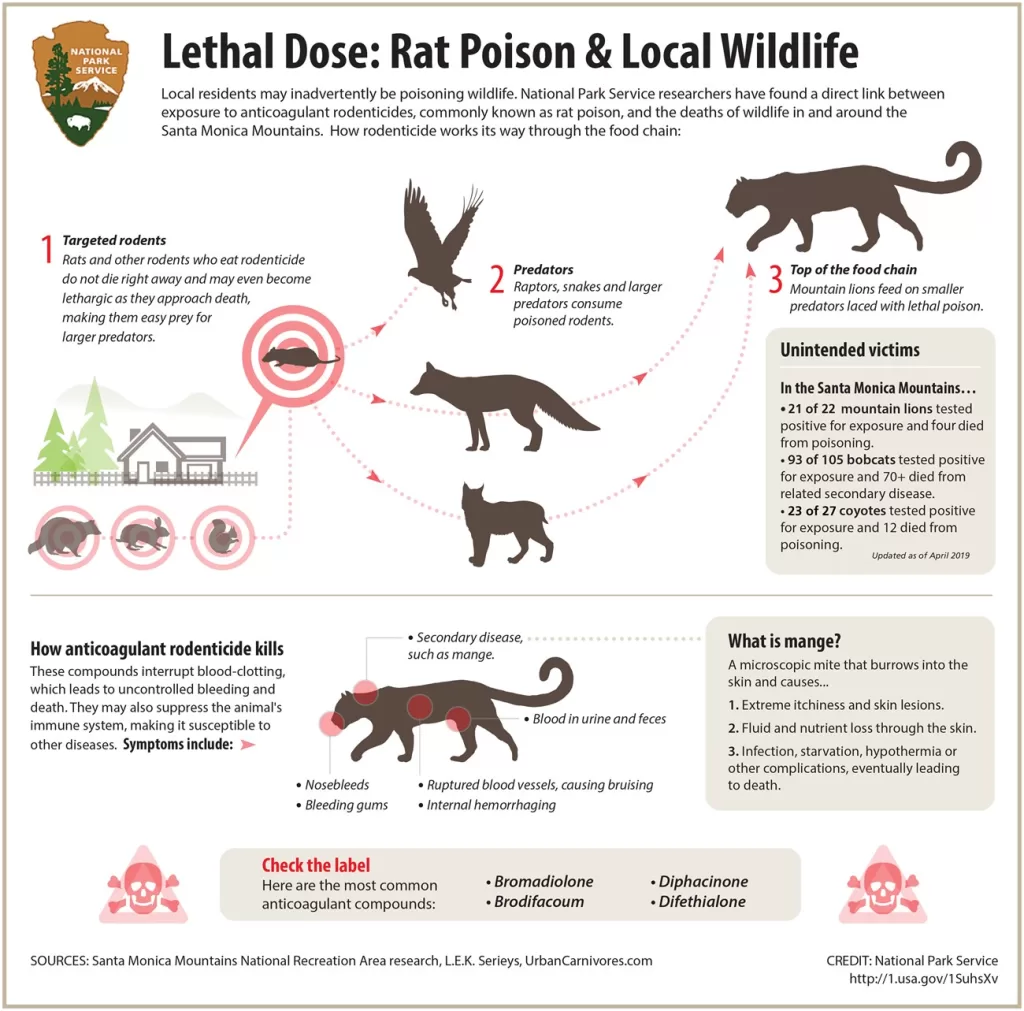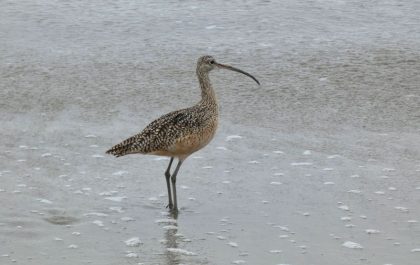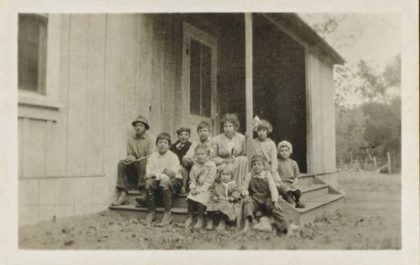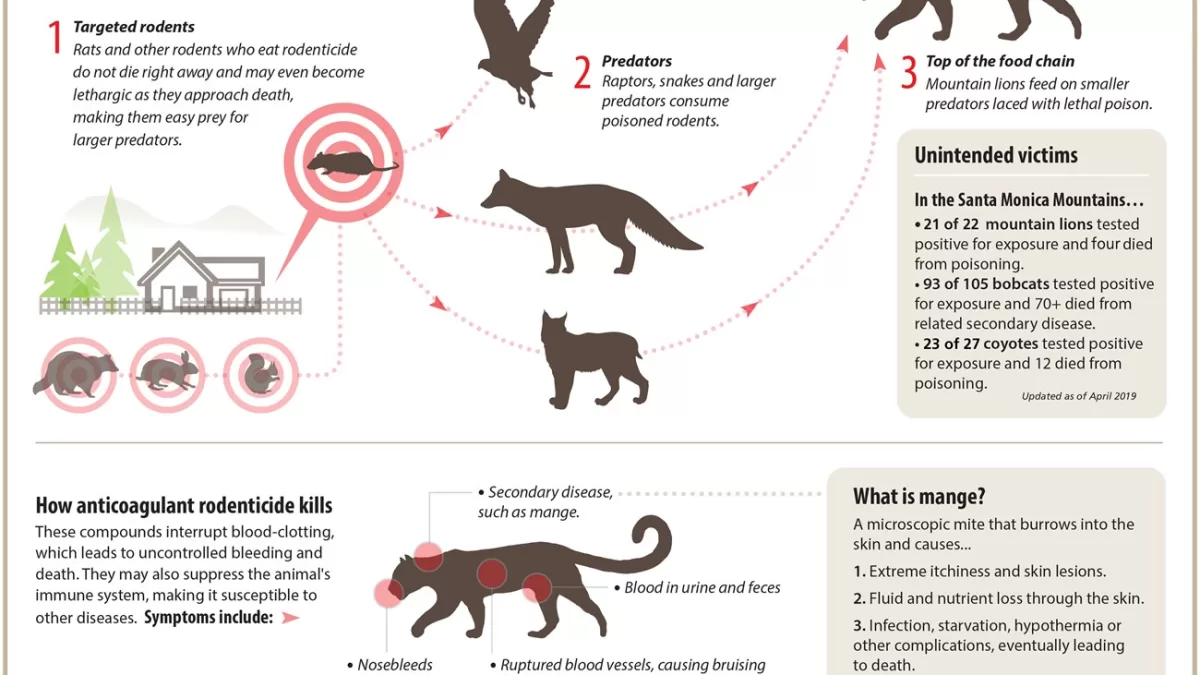Anticoagulant rodenticides kill far more than rodents. This class of widely available pesticides expose pets and local wildlife to deadly poison and the risk of a slow, agonizingly painful death. Rodenticides are still having a catastrophic impact on wildlife, despite efforts to limit use.
Rodents that consume anticoagulant poisons do not die immediately, it can take up to 10 days for the animal to die from internal bleeding. If the poisoned rodent is eaten by another animal after ingesting anticoagulants, that animal is also exposed to the poison.
Rodents that eat poisoned bait continue to move around in the environment and are easy targets for cats, dogs and our native predators, including mountain lions, bobcats, hawks, owls, and coyotes.
Rodents aren’t the only animals attracted to poisoned bait. Birds, rabbits, raccoons, opossums, coyotes, and domestic dogs are attracted to bait boxes.
Predators like owls and bobcats that depend on rodents for a major part of their diet are victims of secondary poisoning. Domestic cats are also at risk. Victims of rodenticide poisoning include a three-month-old kitten.
Tertiary Poisoning occurs when a non-target species eats an animal that is a victim of secondary poisoning. Species like mountain lions can be impacted by secondary and tertiary poisoning. The toxins built up in their system, leaving them with a weakened immune system, and more susceptible to potentially life threatening infections, including lethal mange.
Anticoagulants travel throughout the food chain. There is no way to limit the impact to the target species. NPS research has revealed that 92% of bobcats, 83% of coyotes, and an appalling 94% of mountain lions have been exposed to anticoagulant poisons, sometimes multiple types. This was the second leading cause of death during the study.
Topanga residents historically value nature, the environment, and our wildlife neighbors. Efforts are being made to ban this class of pesticide. Until that happens, it’s up to us to keep our pets and wildlife safe. Anticoagulant rodenticides have no place in our mountains. For more information, visit www.nps.gov/samo/learn/management/rodenticides.htm, www.poisonfreemalibu.org, or www.samofund.org/break-the-poison-chain
THE CHAIN OF DEATH: How rodenticides can enter the local food chain, with unintended victims.






